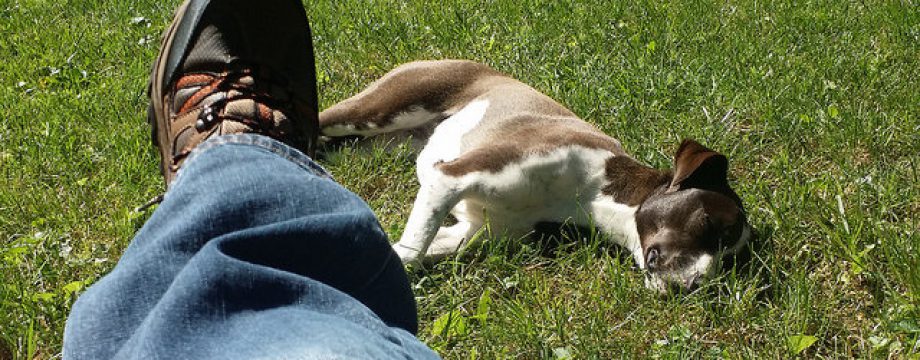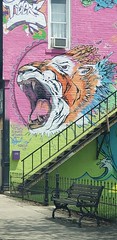This list is the noteworthy books I’ve read in 2017. Previous lists include: 2016, 2015.
American Culture
- Dream Land: The True Tale of America’s Opiate Epidemic by Sam Quinones. This is an interesting take on the heroin epidemic. The story weaves through Ohio with a direct link to a small state in Mexico. The book details how the drug was delivered east of the Mississippi in a ‘pizza delivery’ business model with little to no gang-related violence as competitors’ desire to put the customer first left Ohio (and other states) reeling in the aftermath. Purchase
- Broke, USA by Gary Rivlin. I picked this book up at a thrift store because of its reference to nearby Dayton, Ohio. The book is an excellent look at the various companies, many that exist in my hometown, that are built around the poverty industry. It is an excellent resource for the backstory of the predatory lending that led to a wave of foreclosures in places like Preble County, where I live. Purchase
- Glass House by Brian Alexander. I learned about this book from What’s Nonfiction (read review here) and the book is a detailed story about the demise of a glass manufacturing firm in Lancaster, Ohio. The demise of the company had a devastating affect on the community. The book is one of several I’ve read in an effort to understand Ohio’s economic decline and opioid/heroin epidemic. Purchase
- Hillbilly Elegy by J.D. Vance. This New York Times bestseller mentions my home county (Preble County, Ohio) and the author grew up in Middletown, Ohio — just 30 minutes south of the county. Although the book has been labeled the book ‘to read to understand Trump’s win,’ it reminds me of a Horatio Alger story with a little bit of an Education of Little Tree vibe. Despite creating a dangerous narrative about solving America’s economic woes (just pull yourself up and out of it — while ignoring systemic problems), the book does provide insight into one man’s experience of being raised by Appalachian working poor. Review | Purchase
- The History of Prayer in America: One Nation under God by James P. Moore Jr. At more than 500 pages, the book is not a quick read, but it does offer a unique approach to the history of the U.S. Despite its decisively Christian slant, and occasional sugarcoating of the country’s improprieties, the book is an interesting read filled with uniquely American stories bound together by the theme of prayer. Purchase
- Methland: The Death and Life of an American Small Town by Nick Reding. This book vividly explains the societal conditions, public policy, American mores, values, and business environment that brought the meth crisis to America’s small towns. Review | Purchase
American History
- The Book That Changed America by Randall Fuller. Even though I have never read Origin of Species by Charles Darwin (it’s on my to-read list), I have always been fascinated how many reject his theory. In this book by Fuller, though, he offers a interesting look at the book by examining how it was accepted and/or rejected by Darwin’s contemporaries. | Purchase
- Occult America: The Secret History of How Mysticism Shaped Our Country by Mitch Horowitz. This is definitely one of the most enjoyable books I’ve read. In reality, it’s a list of the various individuals and groups that hold beliefs outside the mainstream of America’s religious organizations which means it could easily slide down the slippery slope of conspiracy theories. It doesn’t. It simply tells the stories of various renown leaders, including presidents Abe Lincoln, FDR and Ronald Reagan, and how they held beliefs outside the religious norm. The well-researched stories are very engaging. | Purchase
- One Simple Idea: How Positive Thinking Reshaped Modern Life by Mitch Horowitz. After reading Occult America I decided to read this book by Horowitz. There is a little bit of an overlap between the two, but this is still an excellent read for those interested in this branch of the American experience. It provides considerable history about the various religious organizations associated with the movement. | Purchase
Essays
- Books for Living by Will Schwalbe. This is a book lovers book as the author meanders through classic and modern books, all carefully woven around the theme of being alive. Interspersed between the book titles and summaries are invaluable insights on what really matters in life. Purchase
- Don’t Get Too Comfortable: The Indignities of Coach Class, The Torments of Low Thread Count, The Never- Ending Quest for Artisanal Olive Oil, and Other First World Problems by David Rakoff. I don’t know how I was introduced to this book, but I like the flow and rhythm of the work. The author, who describes himself as a gay, Canadian-born American citizen, delves into a wide range of subjects and events like his U.S. citizenship process — where the value of voting was hammered home despite the unavailability of voting forms — and a visit to a cryogenics firm in Arizona. Purchase
Just For Fun
- The Alchemist by Paulo Coelho. This novel by Brazilian author Coelho, translated into nearly 70 languages, is an engaging tale of a shepherd’s desire to live out his Personal Legend. Purchase
- The Life We Bury by Allen Eskens. It’s been a long time since I’ve read a novel, but one cold, dreary Saturday afternoon I decided to do just that and what a pleasant surprise this book turned out to be. It has a memoir style, but it is a classic crime mystery. Some of the plot is a little forced, but the characters are very likable. Purchase
Politics
- Giant of the Senate by Al Franken. Even though, like Jerry Seinfeld, Franken cannot not be funny, he tries really hard in this book. What unfolds are the thoughts of a very intelligent man and hard-working politician who is trying to make the country a little better for all of us. Purchase.
- Notorious RBG: The Life and Times of Ruth Bader Ginsburg by Irin Camron and Shana Knizhnik. I knew very little about this Supreme Court Justice before reading this book. After reading it though, I am impressed with her life and feel it is one that truly embodies the American experience. Her willingness to stand up for the marginalized is a testament to her character. The book is not a dry retelling of supreme court cases, it is a mix of of light and heavy leaving the reader with a well-rounded mini-bio of this important feminist. Purchase
- Insane Clown President: Dispatches From The 2016 Circus by Matt Taibbi. Taibbi, a Rolling Stones reporter covering the 2016 presidential election, has compiled articles he wrote during the process. The book offers a succinct, and revealing, history of one of the country’s most bizarre campaigns. Taibbi’s insights are often profound. The book also includes snippets from his previous book on American politics — The Great Derangement — written in 2008. Purchase
Philosophy/Spiritual/Self-Help/Religion
- The Story of Philosophy by Will Durant. In this book from the 1920s, Durant profiles several Western philosophers and offers his critic on their belief system. What I most enjoyed was the lively writing style for a subject that had the potential of being very boring. Purchase
- Man’s Search For Meaning by Viktor Frankl. I believe everyone should read this book in their 20s and again at middle age. The book took on a new life for me in this second reading. The details of the brutality no longer interested me, I was more intrigued by the reality that everyone is both sinner and saint. | Purchase
- God’s Problem: How the Bible Fails to Answer Our Most Important Question — Why We Suffer by Bart D. Ehrman. Ehrman, a scholar and evangelical turn agnostic, presents a very detailed look at how the Bible fails to help people understand and cope with the suffering. Purchase
- The Shack by William Paul Young. Written for his kids and a handful of other friends this short story explains Young’s view on Jesus and the Godhead. When the opening chapter included a quote from Larry Norman, I was hooked. The audio version of the book includes an interview with the author which explains the personal angst behind the story. It was released as a movie in 2017. Purchase
- Living Buddha, Living Christ by Thich Nhat Hanh. An interesting short read by Buddhist monk Hanh who explores the overlapping spiritual beliefs of Christianity and Buddhism. Purchase
- The Happiness of Pursuit by Chris Guillebeau. The book explores the idea of having a life quest — or quests — and how that can bring meaning and happiness to your life. It is also an excellent source of ideas for quests to consider. Purchase
- The Subtle Art of Not Giving A F*ck by Mark Manson. If you are offended by the F-word, skip the book and read some Alan Watts. Manson’s book is basically a primer on Zen Buddhism. Purchase
- The Tao Te Ching by Lao Tsu. Several translations and version of this ancient text exists, the version I read includes a section of commentary after the text. Although, I have never done so in the past, I decided to begin my year with The Tao since the texts presents so many timeless truths to consider or reconsider. | Purchase
Science
- The Universe in a Nutshell by Stephen Hawking. Although I find scientific information interesting, I am by no means a scientist which is why I read Hawking’s book. The book is a fairly short read, explains complicated theories in laymen’s terms and is, at times, even humorous. It is definitely a nice primer for the curious. | Purchase
- Science Set Free by Rupert Sheldrake. British scientist Sheldrake simplifies difficult scientific theories while taking a hard look at systemic problems standing in the way of scientific discovery. | Purchase

